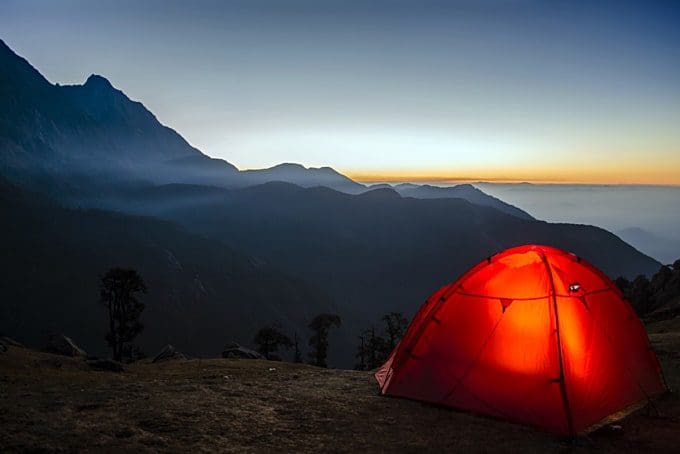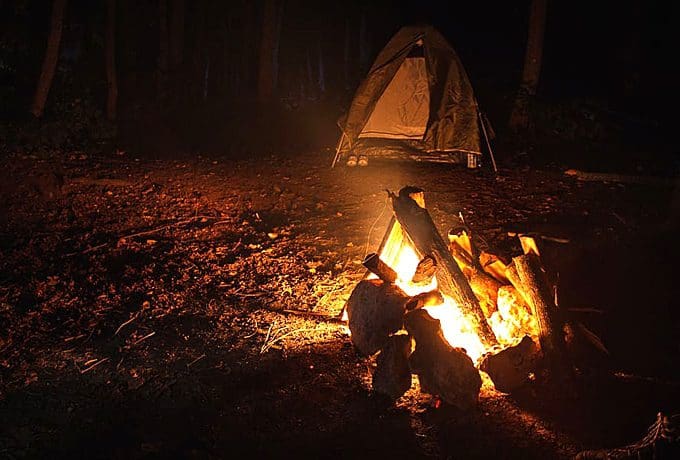words Al Woods
Packing the “Ten Essentials” whenever you step into the backcountry is a good habit even on day hikes. True, on a routine trip, you may use only a few of them or none at all. It’s when something goes awry that you’ll genuinely appreciate the value of carrying these items that could be essential to your survival.
When deciding what to bring, consider factors like weather, difficulty, duration, and distance from help. Below we look at the essential items to bring along on your next camping adventure.

1. Knife
An essential knife may have only a single foldout blade, more elaborate knives, and multitools, including things like a set of screwdrivers, an opener, scissors, and a corkscrew. The more complex your needs (if, for example, you are leading an inexperienced group), the more options you may want in your knife or tool. This is one of the 4 reasons to upgrade your pocket knife as soon as possible.
2. Sun Protection
Always pack with you and wear sunglasses, sun-protection clothing, and sunscreen. Not doing so can result in sunburn or snow blindness in the short term and potentially premature skin aging, skin cancer, and cataracts in the long run.
3. First Aid
It’s essential to carry along a fully packed first aid kit just in case of emergencies. You may decide to put together your own homemade first aid kit, or you may get one off the shelves of your local convenient store. If you do decide to put together your own kit, ensure you’ve included all the essentials.
It may also be prudent to carry along some documentation of the standard first aid techniques with you on the camping trip.

4. Fire
In case of an emergency, you need to have reliable suppliers to start and maintain a fire. This is a disposable butane lighter for many people, but matches are also suitable so long as they are waterproof or stored in a waterproof container. Convenience-store matchbooks are often too flimsy and poorly constructed for wilderness use.
5. Emergency Shelter
Always carry some emergency shelter to protect you from wind and rain if you get stranded or injured on the trail. Options include an ultralight tarp, an emergency space blanket, or a large plastic bag. It’s important to understand that your tent is only your emergency shelter if you have it with you at all times.
6. Extra Food
Always pack at least an extra day’s worth of food if something causes your trip to go long (such as an injury or bad weather). It’s a good idea to pack items that don’t require cooking and have a long shelf life. Things like extra energy bars, nuts, dried fruits, or jerky are good.
7. Extra Water
It’s crucial to carry enough water for your outing and have some method of treating water while you’re out there, whether with a filter/purifier, chemical treatment, or a stove for melting snow. When determining how much water to carry exactly, consider that most people need about a half liter per hour during moderate activity in moderate temperatures.
Conclusion
Remember, your needs are likely a little different than everyone else’s, so adapt and make your own lists. Don’t forget things like medication, hygiene products, or anything else that makes you feel a little more human after being out in the woods for days at a time.




